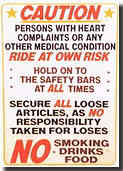Monday, March 02, 2009
Irene Marcuse
Irene Marcuse: Under the Manhattan Bridge, an Anita Servi Mystery (2004).
 Grabbed this book around closing at the library because it was small & light & I was headed to the supermarket, & the dust jacket said it was set on the Lower East Side & in the Williamsburg Orthodox Jewish community, & the author had been a social worker. It's the 4th in the Anita Servi series.
Grabbed this book around closing at the library because it was small & light & I was headed to the supermarket, & the dust jacket said it was set on the Lower East Side & in the Williamsburg Orthodox Jewish community, & the author had been a social worker. It's the 4th in the Anita Servi series.
About 1/3rd of the way through I was really falling for Anita Servi. The murder was interesting - a teenage Orthodox boy found suffocated in a vacuum press in Servi's husband's wood shop a few weeks after 9/11. Servi's view of New York is always close to street level; the neighborhood food, Turkish baths, artist lofts. She has to think about how she'll get from one place to another & how long it will take, walking, buses, subways. She sensitively interacts with elderly people, her attitude toward Brooklyn's insular Orthodox Jewish & Jehovah's Witness communities is unsentimental, & in the former, well aware of the place of women. Only then did I look up the author online & discover Irene Marcuse is the granddaughter of Marxist theorist & philosopher Herbert Marcuse, grew up in Berkeley CA, & had been a geriatric social worker. Those facts are mentioned on the dust jackets of her previous novels, but not this one.
Judging from Anita Servi, Irene Marcuse is not a Marcusean Marxist (nor am I, not even close). Herbert Marcuse was hard to read, an academic, his influence fading when I was reading treatises & the like in the late Sixties - except with the radical left, which always made more noise & trouble than its numbers & may have understood Marcuse no better than I. But he wrote a prophetic essay titled "Repressive Tolerance," which described a process we now usually call co-opting. It can probably be summed up this way: Liberation movements in the United States are channeled in such a way that they do not seriously challenge the economic inequities of American capitalism, or prevent repressive government, or (I will add) overthrow oppressive religious culture. So we have seen, in turn, labor unionism, the Civil Rights movement, feminism, & gay liberation defanged on their way to mainstream, middle class acceptance. Yet, there is resistance even when they pose small threat to the powers-that-be.
The white protestant right responded to school integration (which gave minorities access to better quality education) by forming all white "Christian Academies." When those were denied government aid, the Moral Majority came into being as a political force. Feminism was attacked through reproductive rights - sexual self-determination for women, & the Southern Baptist Convention went so far as to repudiate the ordination of women, the authorization to preach to & lead men. As businesses recognized that homosexuals had economic power & began acknowledging gay domestic arrangements (defacto marriages), the religious right pushed back with anti-gay legislation & attempts at boycotts. In the decades when blacks, women, & gays moved higher in corporate offices & government, the national government itself moved ever rightward & economic inequality increased, the rich got richer, middle class earnings stagnated, & being poor with dignity became almost impossible. American liberalism turned into Walter Mondale & Bill Clinton. Herbert Marcuse said this would happen because the system was fixed to make it happen. Two national leaders who began forming broad underclass political coalitions based upon mutual economic goals were murdered in 1968. The rich are free to exploit those beneath them, but any serious attempt to match the power of wealth with the power of people in common purpose is deemed divisive class warfare & must be stopped.
What about tolerance? If we happen to see a woman in a full, black, veiled burka crossing a broiling Walmart parking lot on a hot July afternoon, accompanied by a husband wearing sandals, shorts, & a tropical shirt, we must be "tolerant." We know her "choice" in the matter is a legal abstraction. We see a woman who needs to be liberated to enjoy the most basic individual liberties. But she exists under taboos. We know it is cultural misogyny, institutionalized by religion. It would not exist without repressive religion. Never mind the 21st or 20th Centuries; the America of both Susan B. Anthony & Walt Whitman has so far failed her. All the old religions practice, in their most reactionary elements, ancient taboos that absurdly claim to be pleasing in the sight of God. I don't need to catalogue them. The burka is just the most visible expression. We can do nothing but hope for the next generation.
Anita Servi made me think about this (or was it Irene's grandfather?). Servi is kind-hearted, a sucker for handing out spare change, tolerant, loves the diversity of New York. She's a feminist, to be sure. She's also nosy, impulsive, cranky, unsure of herself. She knows that parenthood, a good marriage, & responsibilities have made her more appreciative of routine, tradition, stability; maybe more than she'd like. You pretty much know who the bad guys are well before the end of the book. But all the crime fiction authors I like from Raymond Chandler on send their characters wandering across an interesting landscape in search of a "plot," a crime to solve. It's who they meet, how they relate to those people, & how they describe the scenery, that keep me turning the pages when I should put it aside & go to sleep. When Servi walks through a doorway, she enters an environment that touches all her senses.
I'm now reading the first Servi novel, Death of an Amiable Child. Marcuse hasn't published a 5th Anita Servi book, & I'm nosy enough to send her an e mail asking why.
"If a nation expects to be ignorant and free, in a state of civilization, it expects what never was and never will be." Thomas Jefferson
 Grabbed this book around closing at the library because it was small & light & I was headed to the supermarket, & the dust jacket said it was set on the Lower East Side & in the Williamsburg Orthodox Jewish community, & the author had been a social worker. It's the 4th in the Anita Servi series.
Grabbed this book around closing at the library because it was small & light & I was headed to the supermarket, & the dust jacket said it was set on the Lower East Side & in the Williamsburg Orthodox Jewish community, & the author had been a social worker. It's the 4th in the Anita Servi series.About 1/3rd of the way through I was really falling for Anita Servi. The murder was interesting - a teenage Orthodox boy found suffocated in a vacuum press in Servi's husband's wood shop a few weeks after 9/11. Servi's view of New York is always close to street level; the neighborhood food, Turkish baths, artist lofts. She has to think about how she'll get from one place to another & how long it will take, walking, buses, subways. She sensitively interacts with elderly people, her attitude toward Brooklyn's insular Orthodox Jewish & Jehovah's Witness communities is unsentimental, & in the former, well aware of the place of women. Only then did I look up the author online & discover Irene Marcuse is the granddaughter of Marxist theorist & philosopher Herbert Marcuse, grew up in Berkeley CA, & had been a geriatric social worker. Those facts are mentioned on the dust jackets of her previous novels, but not this one.
Judging from Anita Servi, Irene Marcuse is not a Marcusean Marxist (nor am I, not even close). Herbert Marcuse was hard to read, an academic, his influence fading when I was reading treatises & the like in the late Sixties - except with the radical left, which always made more noise & trouble than its numbers & may have understood Marcuse no better than I. But he wrote a prophetic essay titled "Repressive Tolerance," which described a process we now usually call co-opting. It can probably be summed up this way: Liberation movements in the United States are channeled in such a way that they do not seriously challenge the economic inequities of American capitalism, or prevent repressive government, or (I will add) overthrow oppressive religious culture. So we have seen, in turn, labor unionism, the Civil Rights movement, feminism, & gay liberation defanged on their way to mainstream, middle class acceptance. Yet, there is resistance even when they pose small threat to the powers-that-be.
The white protestant right responded to school integration (which gave minorities access to better quality education) by forming all white "Christian Academies." When those were denied government aid, the Moral Majority came into being as a political force. Feminism was attacked through reproductive rights - sexual self-determination for women, & the Southern Baptist Convention went so far as to repudiate the ordination of women, the authorization to preach to & lead men. As businesses recognized that homosexuals had economic power & began acknowledging gay domestic arrangements (defacto marriages), the religious right pushed back with anti-gay legislation & attempts at boycotts. In the decades when blacks, women, & gays moved higher in corporate offices & government, the national government itself moved ever rightward & economic inequality increased, the rich got richer, middle class earnings stagnated, & being poor with dignity became almost impossible. American liberalism turned into Walter Mondale & Bill Clinton. Herbert Marcuse said this would happen because the system was fixed to make it happen. Two national leaders who began forming broad underclass political coalitions based upon mutual economic goals were murdered in 1968. The rich are free to exploit those beneath them, but any serious attempt to match the power of wealth with the power of people in common purpose is deemed divisive class warfare & must be stopped.
What about tolerance? If we happen to see a woman in a full, black, veiled burka crossing a broiling Walmart parking lot on a hot July afternoon, accompanied by a husband wearing sandals, shorts, & a tropical shirt, we must be "tolerant." We know her "choice" in the matter is a legal abstraction. We see a woman who needs to be liberated to enjoy the most basic individual liberties. But she exists under taboos. We know it is cultural misogyny, institutionalized by religion. It would not exist without repressive religion. Never mind the 21st or 20th Centuries; the America of both Susan B. Anthony & Walt Whitman has so far failed her. All the old religions practice, in their most reactionary elements, ancient taboos that absurdly claim to be pleasing in the sight of God. I don't need to catalogue them. The burka is just the most visible expression. We can do nothing but hope for the next generation.
Anita Servi made me think about this (or was it Irene's grandfather?). Servi is kind-hearted, a sucker for handing out spare change, tolerant, loves the diversity of New York. She's a feminist, to be sure. She's also nosy, impulsive, cranky, unsure of herself. She knows that parenthood, a good marriage, & responsibilities have made her more appreciative of routine, tradition, stability; maybe more than she'd like. You pretty much know who the bad guys are well before the end of the book. But all the crime fiction authors I like from Raymond Chandler on send their characters wandering across an interesting landscape in search of a "plot," a crime to solve. It's who they meet, how they relate to those people, & how they describe the scenery, that keep me turning the pages when I should put it aside & go to sleep. When Servi walks through a doorway, she enters an environment that touches all her senses.
I'm now reading the first Servi novel, Death of an Amiable Child. Marcuse hasn't published a 5th Anita Servi book, & I'm nosy enough to send her an e mail asking why.
Labels: religion, what I'm reading















